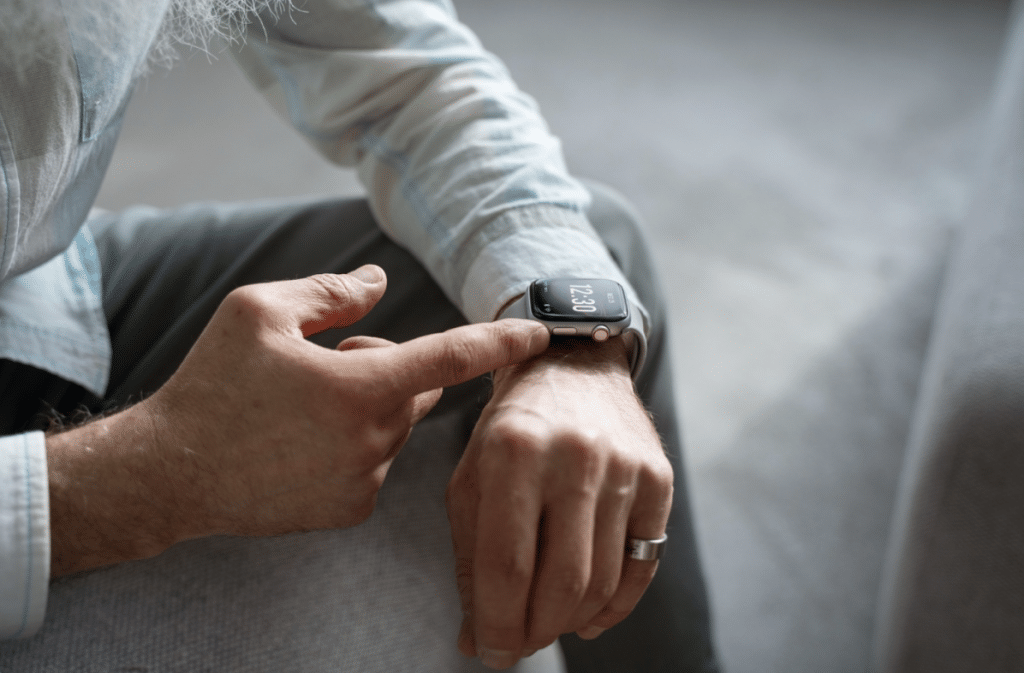Dementia is a progressive neurodegenerative condition that affects millions of people worldwide. It not only impacts the individuals suffering from it but also places a significant burden on their caregivers.
Fortunately, technology has emerged as a valuable ally in dementia care, offering innovative solutions to improve the quality of life for seniors and ease the caregiving journey. Learn more about how technology is making a positive impact on dementia care.
GPS Tracking Devices & Programs
One of the significant challenges in dementia care is wandering. Seniors with dementia often become disoriented and wander off, potentially putting themselves at risk. Programs like the Alzheimer’s Association 24/7 Wandering Support and wearable GPS trackers can provide peace of mind for caregivers and family members. These devices enable real-time tracking of the senior’s location, ensuring their safety and allowing quick retrieval if they get lost.
Cognitive Support Apps
Cognitive decline is a hallmark of dementia, affecting memory, reasoning, and problem-solving abilities. Cognitive support apps, such as Lumosity and CogniFit, have become instrumental in engaging seniors with dementia in brain-stimulating activities. These apps offer customized exercises to target specific cognitive domains, helping slow down the rate of cognitive decline. They can be easily accessed on smartphones or tablets, making them user-friendly for seniors and caregivers.
Assistive Communication Devices
As dementia progresses, seniors may experience difficulty with verbal communication. Augmentative and alternative communication (AAC) devices have made it easier for caregivers and seniors to communicate effectively. These devices range from simple picture boards to more advanced speech-generating devices. They help seniors express their needs, emotions, and preferences, reducing frustration and enhancing the quality of their interactions with caregivers.
Music and Memory Programs
Music has a profound impact on individuals with dementia, often evoking memories and emotions. Music and memory programs have harnessed this power to enhance the lives of seniors with dementia. Caregivers and compassionate dementia care homes can curate playlists of familiar songs from a person’s past, which can be played through simple devices like iPods or specialized music players. When seniors listen to music from their youth or significant life events, it can trigger memories and emotions, providing comfort and a sense of connection.
These programs not only offer emotional benefits but also help reduce agitation and anxiety, improving the overall well-being of seniors with dementia. The personalized playlists can be easily adjusted to meet the changing preferences of the individual, making them a versatile and powerful tool for dementia care.
Telehealth and Remote Monitoring
Telehealth and remote monitoring technologies have gained prominence recently, especially during the COVID-19 pandemic. These innovations offer invaluable support to caregivers of seniors with dementia. Caregivers can consult with healthcare professionals virtually, ensuring timely medical attention without needing in-person visits. Additionally, remote monitoring devices can track vital signs, medication adherence, and even behavioral changes, providing caregivers with crucial data for decision-making.
Technology is continually evolving and has become a valuable asset in dementia care. These innovations not only empower seniors with dementia to lead more fulfilling lives but also alleviate the challenges caregivers face. As technology advances, it’s essential to stay informed about these innovations and explore how they can be integrated into your caregiving routine or a dementia care home to create a more compassionate and efficient environment for all involved.
